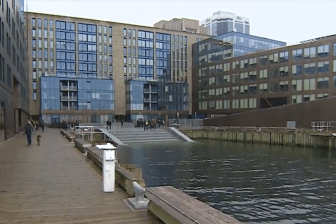Canadian government spending is leaving the Bank of Canada to work alone to rein in the highest rate of inflation in nearly four decades, economists say.
As the pandemic began, Ottawa funneled money to struggling individuals and businesses, while the central bank cut rates and bought bonds. Both wanted to help make up the shortfall in demand.
Now that the economy has fully recovered, shortages of supply, not demand, have become the main economic challenge, helping push inflation to 7.7% in May.

The central bank is aggressively raising rates, but government spending remains expansionary and is increasingly seen as one of the main drivers of inflation.
Read more:
Federal spending fuels inflation, but it’s worth it: Desjardins
“The only thing the government can do is help reduce demand by reining in spending a little bit,” said David Dodge, a former governor of the Bank of Canada and a senior adviser to the law firm Bennett Jones.
“They have announced some planned expenses for the future. They could just delay it. That would be a very real contribution.”
The Bank of Canada has said it may need to raise its policy interest rate to 3 percent or higher to slow the economy enough to control inflation. More government aid would make the Bank of Canada’s job easier.
Read more:
‘Collateral Damage’: Recession, Job Loss Likely as Interest Rates Rise, Study Shows
A 2.3 percent cut in government consumption through 2024 would be equivalent to a 75 basis point cut in the top policy rate, Scotiabank economists including Jean-François Perrault estimated in a recent note.
On Monday, a Bank of Canada survey showed 23 percent of Canadians believe high government spending is one of the main factors making it difficult to control inflation, up from 19 percent three months ago. Supply chain issues and the persistence of the pandemic were the main factors cited.
Canada’s budget deficit is projected to decline to two percent of GDP in the current fiscal year, down from a peak of 14.9 percent in 2020-21, the lowest in the G7. But Canada could do more as government revenues benefit from rising commodity prices.
Last month, Finance Minister Chrystia Freeland outlined $8.9 billion of previously announced spending that focuses on easing the cost of living for Canadians in the face of rising inflation.
Freeland said Canada is taking a “responsible and balanced approach” to inflation, though he did not rule out doing more to mitigate price increases.
“It looks like the level of government spending will remain permanently higher than it was before the pandemic,” said Canada senior economist Stephen Brown of Capital Economics.
Read more:
Retirement? in this economy? How young Canadians can save amid high inflation
In addition to cutting spending, governments, especially provincial ones, could reduce inflation with tough wage negotiations, resisting price increases for contracted services and forgoing some projects, such as road repairs, Dodge said.
“Just as central banks and governments came together to spur our way out of the pandemic, they must now act in the opposite direction to quell excess demand pressures that are driving inflation,” said Sal Guatieri, senior economist at BMO Capital. . Markets.



